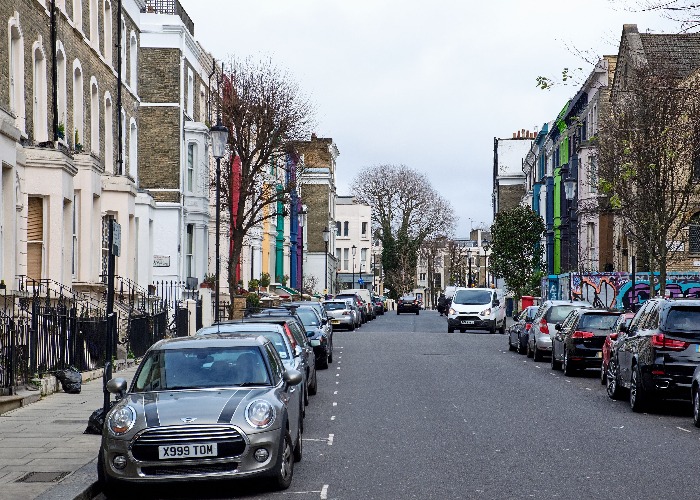I saved £187 by ditching my car for a month

Our writer examines how much she saved by ditching her car for just under a month…
We all know driving is an expensive business, but a recent incident has really made me question how much I want to own a car.
Basically, I’ve been without my beloved old banger for four weeks following a prang with a neighbour and a bitter dispute with his insurance company.
I won’t bore you with the details, but suffice to say, I blame the other driver.
For the first few days, being an unwilling pedestrian was a nightmare.
How would I survive without the vehicle I use to collect our weekly grocery shop or take my mum to her hospital appointments?
Four weeks on, I’ve done my monthly spending audit and discovered I could save almost £200 a month by ditching my car.
It may be less practical, but going car-free clearly has its advantages.
So, how does my spending break down?
Need a loan for a new car? Shop around for the best rate
Petrol
Living in a village on the outskirts of Hull, I spend what most motorists would probably consider an obscene amount on petrol – especially for a freelance journalist without a daily commute to finance.
Most months, I’m landed with a bill of approximately £80, which equates to £960 a year – a sum I can scarcely afford.
If I ever manage to get back on the roads, I’ll find ways to slash the amount I spend on petrol.
Parking and tolls

Hull’s City of Culture year was fantastic for our area. The winners? Local people and local business.
The losers? Drivers. It’s now almost impossible to find a free parking space in the centre of the city.
Without driving, I estimate I’ve saved £25 on parking and tolls during the past four weeks.
Over a 12-month period, this would equal £300.
Search for cheaper car insurance now. Don't simply renew!
Fines
In the two years since I passed my test, I’ve made a few, ahem, driving faux pas... one parking ticket, one speeding.
Embarrassingly, and I expect no sympathy, my negligence has cost me approximately £160 over the past 24 months or roughly £80 a year, six pounds a month.
If you feel you’ve received an unfair parking fine, check out our article on how to fight back.
The long-term costs of driving
If I really want to calculate the cost of car ownership, I need to factor in those crippling one-expenses drivers face.
First off, my MOT is due soon.
Under current legislation, the maximum test costs for a car MOT test are £54.85.
But, it was never the cost of the test itself that worried me and I suspect many motorists feel the same.
My car is almost a decade old so there’s every chance I could face costly repairs. Then there’s tyres, brake pads and wipers to factor in.
While I can’t say how much the latest test will end up costing, I do know I have spent at least £350 a year on car maintenance.
One-off expenses
My car insurance costs (for a relatively new driver who already has a less-than-spotless record) are just shy of £600 a year… believe me, I’ve shopped around, these rates were the most reasonable I could find.
Then there’s the vehicle tax, which is more than £120 a year on my old banger.
And breakdown cover… I don’t have this, perhaps I should. From a quick Google search, it seems the cost for the most basic policy is approximately £40 a year.
Compare car insurance with loveMONEY
What’s the catch?
The first thing anyone asks me when I tell them about my challenge: How do I factor in the additional money I’ve spent by not driving.
In my case, these expenses were mainly related to public transport and I was surprised by how low they actually were.
During these past four weeks, I’ve gotten away with spending about £20 on bus fare, which would total £260 a year if I decide to remain a full-time pedestrian.
For most trips, it’s easier to walk than brave the bus and at least I do actually get some exercise.
Pooling together journeys is also a massive money saver.
This way, I only need to make one trip into the town centre a week, rather than my usual three or four.
Search for cheaper car insurance now. Don't simply renew!
My total savings
Doing the sums, my entire savings for going car-free would equal £2,244 a year or £187 a month – a big chunk of my freelance earnings.
Do I really need a car?
My motorless 'month' may have taught me to be a little more cautious with my car spending, but I’m not quite ready to give up on driving entirely.
If, however, you do develop a taste for the car-free lifestyle and own a vehicle you’re no longer driving, you’ll need to need to apply for a Statutory Off Road Notification with the DVLA to avoid paying tax and insurance.
You can find information on making a SORN on the gov.uk website
Whatever happens with my insurance claim, I can definitely see the financial and environmental benefits of leaving my motor behind.
Comments
Be the first to comment
Do you want to comment on this article? You need to be signed in for this feature